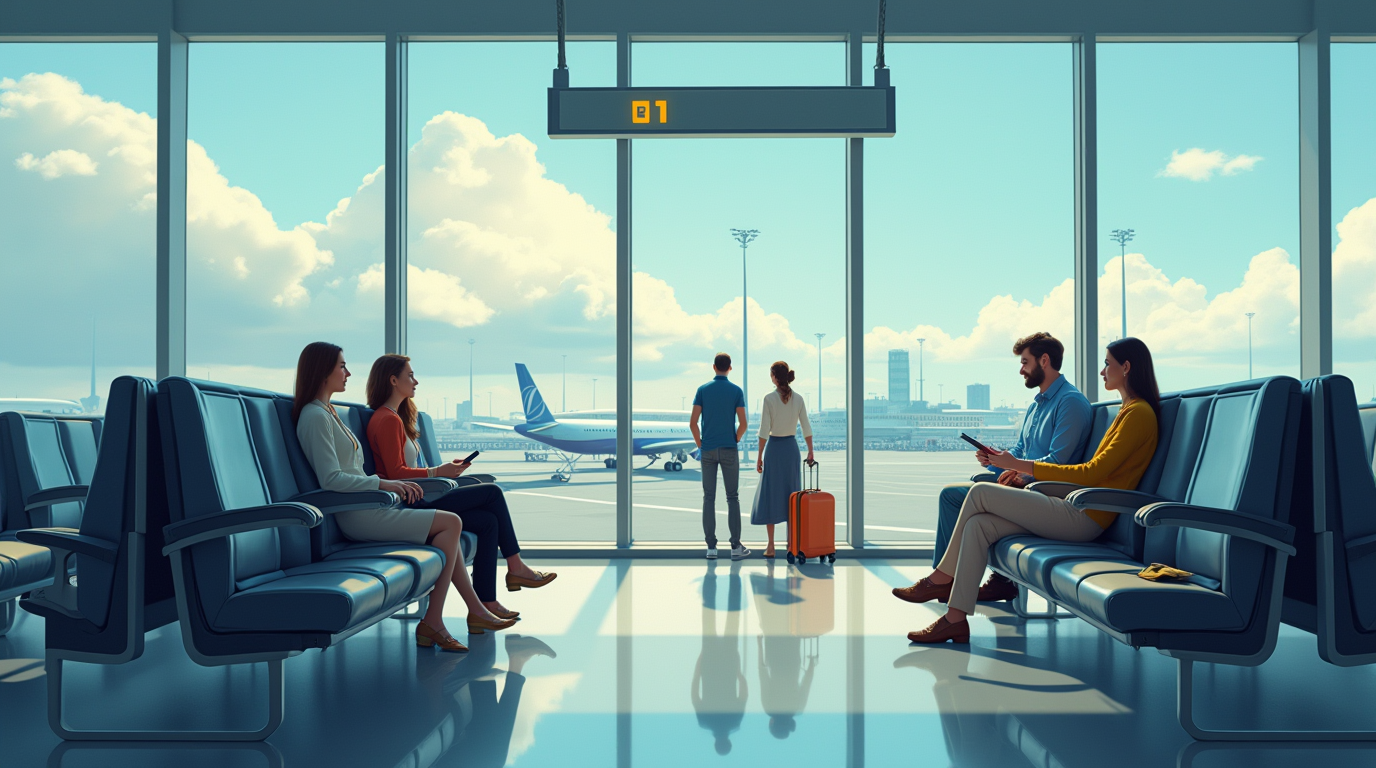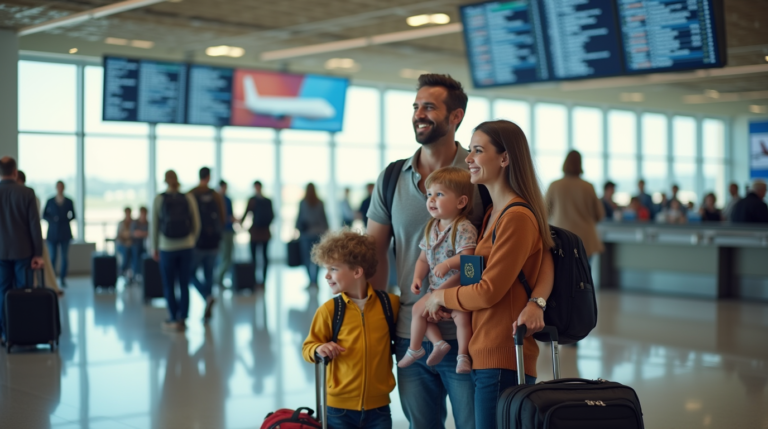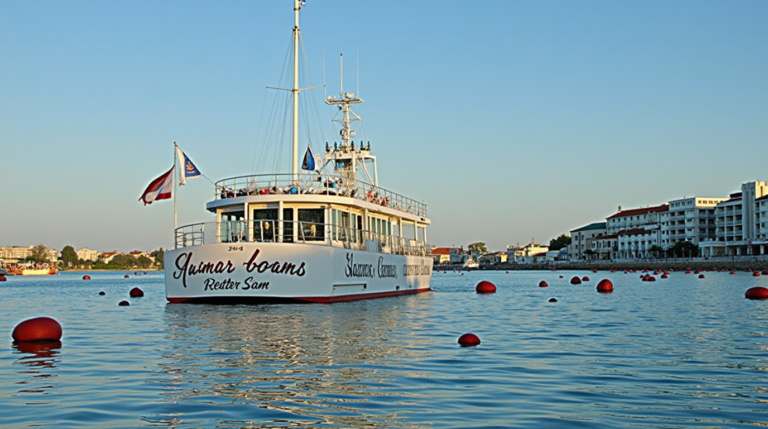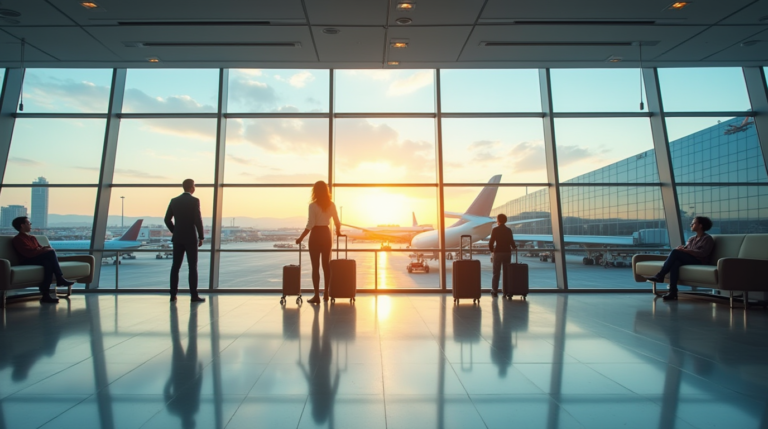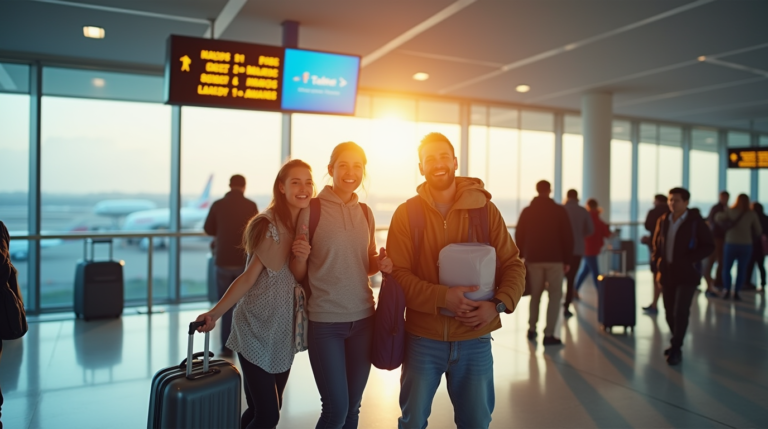21 Essential International Travel Safety Tips: Your Complete Guide to Secure Global Adventures
Complete Guide to Secure Global Adventures
Before Your Trip
The allure of international travel is undeniable—new landscapes, flavors, cultures, and experiences await beyond our borders. Yet, alongside the excitement that comes with planning your next adventure lies an important consideration: how to stay safe while exploring unfamiliar territories.
While most trips unfold without incident, being prepared for potential challenges can make the difference between a minor hiccup and a vacation-altering emergency. The good news? A little preparation goes a long way in mitigating risks.
This comprehensive guide offers practical advice that strikes the perfect balance between vigilance and enjoyment. After all, travel should expand your horizons, not shrink them with worry. By implementing these strategies, you’ll develop confidence that allows you to immerse yourself fully in new experiences while keeping potential dangers at arm’s length.
Remember, the most enriching travel experiences often come from embracing the unknown—just do it with open eyes and a prepared mind. Trust your instincts, remain aware of your surroundings, and allow yourself to be transformed by the journey.
Pre-Departure Safety Measures: Being Proactive Before Your Trip
The foundation of safe travel is built before you even pack your suitcase. Taking time to research, prepare, and educate yourself about your destination can prevent many problems before they arise.
1. Understanding Potential Threats: Research Common Travel Scams
Even seasoned travelers can fall victim to well-orchestrated scams in unfamiliar settings. Each destination has its own particular schemes that target visitors, from fake taxi meters in Southeast Asia to the notorious “found ring” trick in Paris.
A simple online search for “common scams in [your destination]” can reveal invaluable information. Travel forums, blogs, and social media groups often contain firsthand accounts that official sources might miss. Locals and experienced travelers can offer insights about which neighborhoods to avoid after dark, which taxi companies are reputable, and which tourist attractions might harbor pickpockets.
This knowledge doesn’t mean viewing every interaction with suspicion—rather, it helps you recognize potential red flags and navigate new environments with confidence.
2. Leveraging Official Resources: Scan the U.S. Department of State Country Information Page
The U.S. Department of State maintains detailed country information pages that serve as goldmines for travelers. These comprehensive resources cover:
- Essential country facts and political context
- Embassy and consulate locations with emergency contact details
- Entry and exit requirements including visa information
- Detailed safety advisories for specific regions
- Local laws visitors should be aware of (including surprising restrictions)
- Healthcare information and medical facility quality assessments
- Transportation infrastructure details and safety considerations
Bookmarking these pages on your phone provides instant access to critical information throughout your journey. Even if you’re traveling from another country, the U.S. State Department’s resources offer valuable insights available to anyone.
3. Assessing Overall Safety: Review Travel Advisories
Travel advisories provide at-a-glance safety assessments that help contextualize risk. The U.S. Department of State uses a four-tier system:
- Level 1 – Exercise Normal Precautions: Standard vigilance similar to what you’d practice in unfamiliar areas at home.
- Level 2 – Exercise Increased Caution: Heightened awareness recommended due to specific concerns.
- Level 3 – Reconsider Travel: Serious risks identified that may warrant postponing non-essential travel.
- Level 4 – Do Not Travel: The highest threat level indicating severe danger to visitors.
These advisories are particularly valuable because they’re typically region-specific rather than country-wide, helping you distinguish between safe areas and those experiencing unrest or elevated crime rates.
4. Monitoring Health Risks: Check CDC Travel Health Notices
Health considerations are as crucial as security when traveling internationally. The Centers for Disease Control and Prevention (CDC) maintains current health notices for countries worldwide, categorizing locations into three risk levels:
- Watch Level 1: Practice usual precautions
- Alert Level 2: Implement enhanced precautions
- Warning Level 3: Avoid nonessential travel
These notices alert travelers to disease outbreaks, vaccination requirements, and health infrastructure limitations. During global health events, these resources become especially crucial for making informed travel decisions and understanding quarantine or testing requirements.
5. Preparing for Emergencies: Write Down Local Emergency Numbers
While 911 is ingrained in American consciousness, emergency service numbers vary widely around the world. Some countries have different numbers for police, ambulance, and fire services, while others use a unified system.
Record these numbers in multiple places—your phone contacts, a note in your wallet, and in any travel documents. In stressful situations, having this information readily accessible can save precious minutes.
6. Respecting Local Norms: Learn About Local Laws and Customs
What seems perfectly acceptable at home may be offensive—or even illegal—elsewhere. Understanding cultural expectations around dress, public behavior, photography restrictions, and religious observances helps you navigate new environments respectfully.
Beyond the obvious benefit of avoiding legal trouble, cultural awareness enhances your travel experience by facilitating meaningful connections with locals. Sources like travel guides, cultural websites, and expatriate forums can provide insights beyond official government resources.
7. Safeguarding Your Health: Get Necessary Vaccinations
Immunization requirements vary widely depending on your destination and can change based on current outbreaks. Some countries require proof of certain vaccinations for entry, while others strongly recommend preventative measures against endemic diseases.
The CDC’s Travelers’ Health page provides destination-specific vaccination recommendations. Schedule medical consultations at least 4-6 weeks before departure, as some vaccines require multiple doses spaced over time to be effective. Your healthcare provider might also recommend preventative medications for conditions like malaria depending on your itinerary.
8. Establishing Emergency Contact: Register with Your Embassy
Embassy registration programs create a vital link between you and your home country while traveling abroad. These free services allow consular officials to:
- Contact you during emergencies like natural disasters or civil unrest
- Notify you about changing security situations
- Help family reach you during personal emergencies
- Facilitate evacuation if necessary
Registration takes just minutes but establishes a crucial safety net. U.S. citizens can use the Smart Traveler Enrollment Program (STEP), while other countries offer similar services like Canada’s Registration of Canadians Abroad or the UK’s Foreign Travel Advice registration.
9. Mitigating Weather Hazards: Check Forecast Conditions
Weather can dramatically impact travel safety, from monsoon flooding in Southeast Asia to hurricane season in the Caribbean. Beyond packing appropriately, understanding seasonal weather patterns helps you evaluate more serious risks.
Monitor forecasts in the days leading up to departure, and consider how extreme weather might affect your itinerary. For adventure travel involving hiking, water activities, or remote locations, weather awareness becomes even more critical for personal safety.
10. Protecting Against Unexpected Events: Purchase Travel Insurance
Standard health insurance policies typically provide limited or no coverage outside your home country. Travel insurance fills this gap by offering protection against medical emergencies, trip cancellations, lost luggage, and other travel disruptions.
When selecting a plan, consider your specific needs:
- Travel medical insurance covers emergency healthcare and evacuation costs, which can otherwise run into tens of thousands of dollars.
- Trip cancellation insurance reimburses non-refundable expenses if you must cancel for covered reasons.
- Comprehensive plans like Atlas Travel combine medical coverage with benefits for lost baggage, trip interruption, and other travel mishaps.
The modest upfront cost provides significant peace of mind and financial protection against worst-case scenarios.
11. Ensuring Document Recovery: Make Copies of Important Documents
Document loss or theft can derail even the best-planned trip. Before departure, make digital and physical copies of:
- Passport identification page
- Visa documentation
- Driver’s license and other identification
- Travel insurance policies
- Flight and accommodation confirmations
- Credit cards (front and back)
Store digital copies in secure cloud storage and email them to yourself for easy access. Keep physical copies separate from originals, perhaps divided between your luggage and carry-on. These precautions streamline replacement processes if originals are lost or stolen.
12. Facilitating Communication in Emergencies: Learn Key Local Phrases
While English is widely spoken in many tourist destinations, knowing a few critical phrases in the local language can be invaluable during emergencies. Focus on essential expressions like:
- “Help!”
- “I need a doctor”
- “Call the police”
- “It’s an emergency”
- “Where is the hospital/police station?”
Even basic pronunciation helps bridge communication gaps when seconds count. Consider downloading an offline translation app that works without internet access as additional support.
Safety During Transit: Staying Vigilant on Your Journey
The journey itself—whether by air, land, or sea—presents its own set of safety considerations. Transitional spaces like airports, train stations, and transportation hubs often see higher rates of opportunistic crime targeting travelers.
13. Protecting Against Theft: Choose Secure Bags
Crowded tourist areas and public transportation systems worldwide are hunting grounds for pickpockets and thieves. Simple equipment choices can significantly reduce your vulnerability:
- Crossbody bags provide better security than shoulder bags, which can be easily snatched.
- Anti-theft backpacks feature hidden zippers, slash-resistant materials, and locking mechanisms.
- Money belts or hidden pouches keep valuables concealed under clothing.
In particularly crowded areas, wear backpacks on your front and keep essential items (wallet, phone, passport) in front pockets rather than back pockets, which are prime targets for pickpockets.
14. Preventing Loss: Maintain Visual Contact with Belongings
The momentary distraction of checking directions or taking photos provides ample opportunity for theft. Develop habitual awareness of your possessions, especially in transit hubs, cafes, and public spaces.
Never leave bags unattended, even “just for a second.” If you must briefly step away, ask a uniformed employee for assistance rather than trusting strangers. On public transportation, keep valuable items on your lap or within view rather than in overhead compartments.
Safety at Your Destination: Staying Secure in a New Environment
Once you’ve arrived at your destination, a different set of safety practices becomes relevant as you navigate unfamiliar surroundings.
15. Maintaining Communication: Keep Regular Contact
Establish a communication schedule with someone at home—daily check-ins via text or social media provide both safety benefits and peace of mind for loved ones. Share your itinerary details, accommodation information, and planned activities with this trusted contact.
For remote destinations with limited connectivity, communicate expected periods of silence in advance to prevent unnecessary worry. Consider investing in international data plans or local SIM cards to ensure reliable communication options.
16. Protecting Your Valuables: Use Hotel Safes
Most hotels provide in-room safes for storing passports, excess cash, expensive electronics, and jewelry when not in use. Even in budget accommodations and hostels, lockers are typically available (bring your own lock).
Avoid leaving valuables visible in your room, even when using the safe. Consider bringing a portable door lock or alarm for additional security in accommodations where you have concerns about room entry.
17. Seeking Local Guidance: Consult Hotel Staff
Front desk personnel at hotels and hostels serve as valuable local intelligence resources. These professionals typically speak excellent English and possess extensive knowledge about neighborhood safety. They can advise on:
- Areas to avoid, particularly after dark
- Legitimate taxi services and appropriate fares
- Current scams targeting tourists
- Safe and authentic local dining options
- Recommended routes for walking and sightseeing
This local perspective helps you navigate beyond the generic advice found in guidebooks and websites.
18. Enhancing Security: Travel with Companions
Solo travel offers incredible rewards but inherently involves more vulnerability. Whenever possible, explore with others, particularly in unfamiliar areas, after dark, or when venturing off typical tourist paths.
If traveling alone, consider joining day tours or finding temporary companions through hostels or traveler meetup events for specific activities. Many destinations also have women-only tour groups or accommodations that provide additional security considerations.
19. Maintaining Awareness: Drink Responsibly
Impaired judgment significantly increases vulnerability while traveling. While sampling local beverages is part of the cultural experience, moderation is essential for maintaining situational awareness.
Practical precautions include:
- Watching drinks being prepared
- Never leaving beverages unattended
- Setting personal limits lower than you might at home
- Ensuring reliable transportation back to your accommodation is available
Remember that alcohol tolerance can be affected by jet lag, different climates, and unfamiliar surroundings.
20. Choosing Safe Transportation: Use Reputable Services
Transportation-related scams rank among the most common issues travelers face. Minimize risk by:
- Using ride-sharing apps that track your journey and driver information
- Having hotels arrange taxis from trusted companies
- Confirming fares before entering any vehicle
- Verifying that official taxis use meters or have fixed rates
- Checking vehicle and driver details against app information before entering
Upon entering any ride service, verify the driver knows your name or destination—this confirms you’re in the correct vehicle. When possible, share your ride status with someone else for additional security.
21. Being Mindful of Consumption: Consider Food Safety
Food-borne illness can quickly derail vacation plans. While sampling local cuisine is a travel highlight, implement reasonable precautions:
- Patronize busy establishments with high turnover
- Ensure hot foods are served steaming hot
- Watch for proper food handling practices
- Be cautious with raw vegetables, unpeeled fruits, and undercooked meats
- Follow destination-specific drinking water guidelines
- Carry hand sanitizer for use before meals
Research destination-specific food safety recommendations through the CDC’s travelers’ health resources, as practices vary widely by region.
Embracing Travel with Awareness, Not Fear
These safety measures aren’t meant to instill paranoia but rather to provide tools that enhance your confidence while exploring. The vast majority of travelers return home with nothing but wonderful memories and perhaps a few minor inconveniences to laugh about later.
The most enriching travel experiences often come from venturing beyond comfort zones, embracing spontaneity, and connecting with different cultures. Preparation and awareness create the foundation that allows you to say “yes” to these opportunities with confidence.
By incorporating these strategies into your travel routine, you’ll develop habits that become second nature—allowing you to focus less on potential risks and more on the transformative experiences that make international travel so rewarding.
Safe travels—the world awaits your exploration!

